What Is Legal Guardianship?
Legal Guardianships are established by the Arizona Courts to ensure children’s well-being and continued care when their biological parents are unable or unwilling to continue providing care at an acceptable standard of living. There are different types of legal guardianship, and each type might be used in various situations. It is essential to know each person’s rights and responsibilities before deciding.
The best way to educate yourself and your family is to talk with a family law attorney who is well-versed in guardianship law. The lawyers at Arizona Family Law are on your side from day one. We are compassionate and empathetic, and our clients are our extended family. There is no substitute for peace of mind. Call us today at 480-448-0608 for a consultation.
When Is Legal Guardianship Used in Arizona?
In many situations, it may be in the child’s best interest for a legal guardianship to be established.
Some examples would be:
- The biological parents voluntarily assign legal guardianship to another because they are unable to provide a standard of living that is acceptable
- The biological parents will be out of state. This could be for any prolonged reason, deployment, work, vacation, or any other reason when another adult may be required to care for their children for a prolonged period
- A court of law determines parental negligence. In such a case, permanent legal guardianship may be assigned by the juvenile court
What Is Title 8 Guardianship
If you are considering guardianship for any reason, it is vital to educate yourself. There are two different types of guardianship, and each comes with different rights and responsibilities. If you have any questions about the differences between the two, consult with a knowledgeable family lawyer at Arizona Family Law Attorneys. Our team is always available to help.
Title 8 Guardianship begins when a third party notifies the court that the parents are unable or unwilling to care for their child correctly. At this point, the court assigns a permanent legal guardian who will be responsible for the Minor until the age of 18.
The Guardian has the following Rights and Responsibilities.
- Day-to-Day Decision Making
- Medical Call of the Minor
- Custody ( Care and Control )
- Education
- Protection of the Minor
If there is a significant change in the mitigating circumstances biological parents have the right to file a petition to revoke the permanent guardianship.
What Is Title 14 Guardianship
Title 14 guardianship is for unique circumstances. It is meant to be a temporary arrangement. It is frequently used for a specified period of time if the biological parents remain out of town, or it can extend until the child reaches the age of 18. Title 14 is much easier for families to work with since it is less challenging to reverse. Still, It is best to have a qualified Family Law Attorney, like those at Arizona Family Law Attorney, to advise you on your options.
How Do You Obtain Legal Guardianship Of A Child?
Obtaining Guardianship is a serious matter; it is a lifelong commitment and should not be taken lightly. There are multiple steps involved in the process.
- Obtain and fill out your application packet. Multiple forms are required. Your Family Law Attorney can help you determine the necessary forms for your situation
- File your petition – Once you have filled out all the paperwork, your lawyer will file it with your county’s Juvenile Court
- Serve notice to all the involved parties—An essential step in the Guardianship process is to ensure that all parties involved are aware. Even if the biological parents gave their signed consent to the guardianship, they still must be served with legal notice of the paperwork
- Give the Court notice—If you have any special needs for your case ( such as a language translator ), you must give the court ten days’ notice.
- Have your fingerprints taken. Arizona requires that all non-relatives of the child have their fingerprints on record so a background check can be performed. A complete background check is vital information for the court to have for any potential caregiver to ensure the child’s safety. The child’s best interest and welfare are the court’s highest priority
- Prepare statement: During the hearing, the judge will want to understand why it is in the child’s best interest to be in your guardianship, so it is essential to have a prepared statement. Your lawyer will help you prepare. You may also bring witnesses to testify on your behalf
- Attend the hearing: You must attend the scheduled hearing with your legal team and present your documents and testimony to the judge. Your Family Law Lawyer will assist you in presenting your case
- If your petition is granted, Congratulations—you have won more paperwork! Once the judge grants your petition, you will need to fill out acceptance paperwork, which finalizes the guardianship agreement
- Attend Any Court court-ordered guardianship Training. Sometimes, the court orders mandatory training sessions for guardians. This is usually completed while you are waiting for the court’s ruling. Your family law lawyer will be able to give you all the information you need about these requirements. You must complete these and return all attestation paperwork to the court
When Should I Call A Guardianship Lawyer?
Deciding to take on a guardianship role is a big step that should be taken seriously. If you are considering this step and need the steady guidance of a helping hand, Contact Arizona Family Law Attorneys because there’s no substitute for peace of mind. Call 480-448-0608
for consultation.







